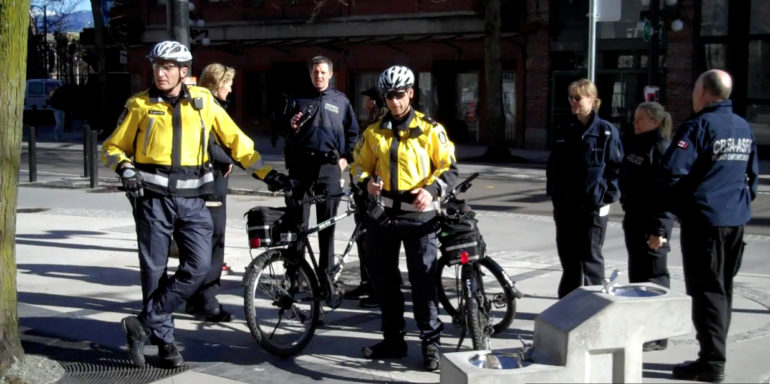
(Flickr)
By: Murissa Barrington
The Canada Border Services Agency will begin tracking how often their patrol officers check traveler’s cellphones.
This comes after a House of Commons meeting was held yesterday to discuss the privacy concerns of travelers at airports and borders while traveling to and from the United States.
During the meeting, Martin Bolduc, vice-president of the CBSA’s program branch, said that at first the agency wasn’t tracking the number of phone searches. A few weeks ago, however, he told his team to start.
In addition to tracking the number of phone searches at the border, the CBSA also promised that they would report their findings after six months. Bolduc said that the CBSA is “both committed to maintaining an individual’s right to privacy and the safety and security of Canadians.”
It’s unclear how long the CBSA has been conducting cell phone searches but Bolduc said that they are only conducted if a further examination is needed of an individual. He said that only a “low percentage” of phones are inspected.
“I want to address the myth that we often go into the personal phone of travelers. This is not the case. How we conduct our evaluation is done in a progressive fashion,” said Bolduc.
The customs act gives border security the right to examine all goods for customs related purposes. In this case, the goods would be a phone. Border agents have the authority to ask for cell phone passwords and if someone refuses, they could be detained and held for further questioning.
The Canadian Civil Liberties Association (CCLA) feels the laws need to change.
“The CCLA’s position is that we badly need to update laws regarding device searches at the border,” said Brenda McPhail, Director of Privacy, Technology and Surveillance Project at the CCLA.
On the CCLA website they say their mission is to fight “for the civil liberties, human rights, and democratic freedoms of all people across Canada.”
The concept that a cell phone is a good is something that the CCLA disagrees with and they say, they shouldn’t be treated the same way.
“A cell phone is not the same thing as a suitcase,” said McPhail. “In a suitcase, you’ve got a few items of clothing, maybe some dirty underwear that might be a little bit embarrassing to see. In a cell phone, you have all of your personal communications with your parents and your friends and your lovers.”
McPhail also pointed out that intimate photos or documents may be on the phones of travelers.
The agency says they continue to do the searches because unfortunately, they have found instances where further phone inspections revealed illicit activity.
“We have found child pornography for instance. We’ve found propaganda material on cell phones,” Bolduc said, adding that the search isn’t a last resort, but it isn’t the first thing they check.
In the United States, there have been reports that the number of cell phone searches have spiked and has raised concerns for travelers who feel their privacy is being invaded by inspections.
The CBSA asserted that social networking profiles are not checked by border security agents.
Bolduc explained that once accessed, the officers put the phones in airplane mode so that there is no further inspection of the device outside of what’s available offline.
Within the past year, Natalie Sabourin, Manager, Information Management, Privacy and ATIP at the Canadian Air Transport Security Authority (CATSA) added that the privacy commission has only received one complaint related to personal privacy concerns.
“The general public should not fear of carrying their electronic devices across the borders,” Bolduc said but he warned that if travelers wanted to keep certain information confidential, they shouldn’t keep it on their phone.
The CCLA echoed a similar piece of advice to travelers who wanted to avoid having their private information looked at by a border services agent.
“You need to think about it before you even get anywhere near the border or the airport. You need to spend a few minutes the same way that you pour shampoo out of your big bottle into one of those little bottles,” said McPhail.
The CATSA said to avoid any issues traveling by air, they recommend travelers make sure that their phone is charged and able to turn on.
The law on cellphone and laptops searches is still unsettled but the privacy commission website explains that until then the agency’s policy is to be followed.

